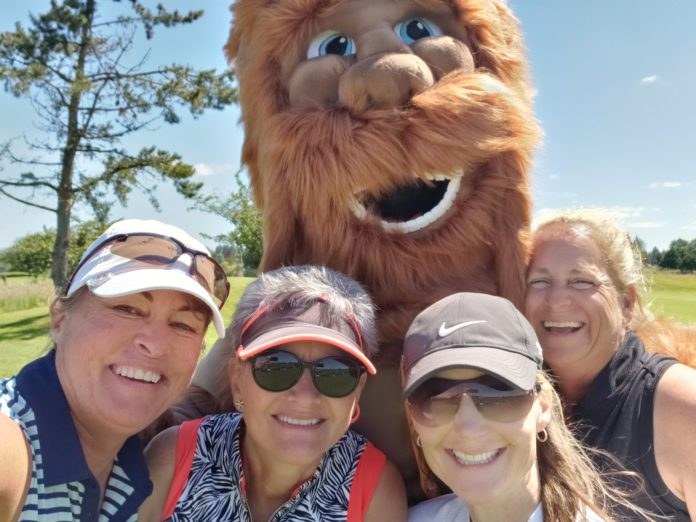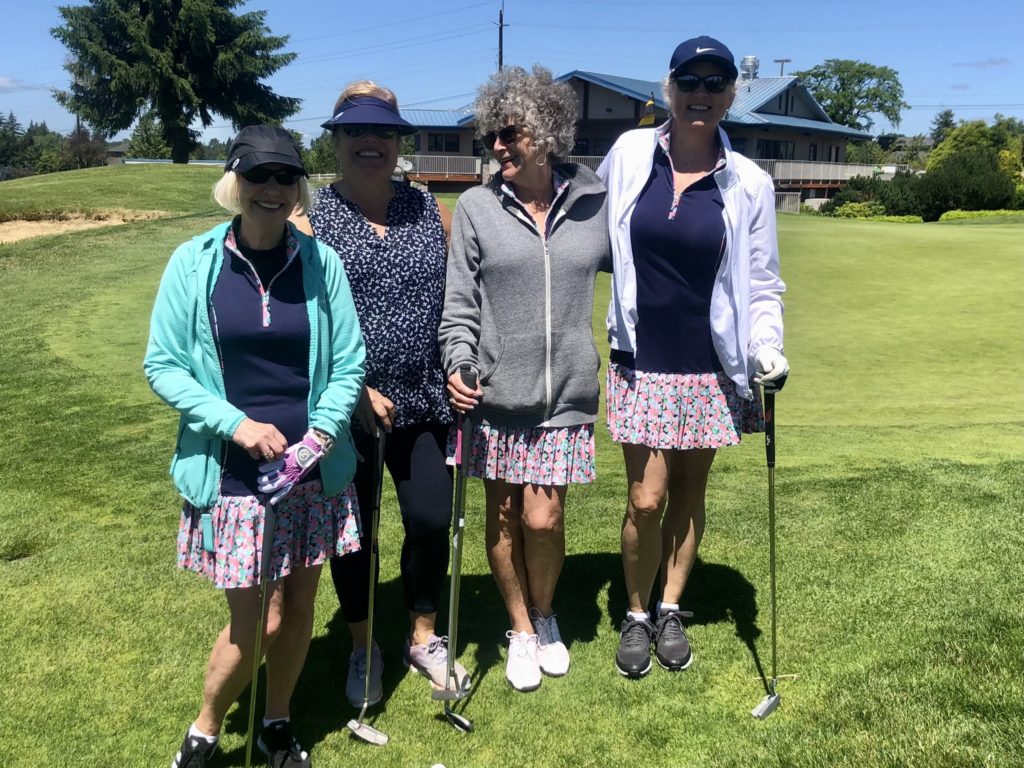
Back in 1999, Bridge the Gap was first founded by two Vancouver women – Tauni Hemminger and Peggy Hayes – when they both recognized a need in the foster care system that was not being met.
Emily Weiss, a Bridge the Gap board member, said that Hemminger, an entrepreneur and philanthropist, lived in a chaotic and abusive home herself and as a child moved frequently, making life unpredictable and difficult. Weiss said that Hayes began working with foster children at the Division of Children and Family Services (DCFS) in 1981 as a social worker before becoming the community resource manager in 1993.
“Together as close friends, they recognized a need in the foster care system that was not being met,” Weiss said. “The state funding covers only a portion of the basic needs and services for children in foster care. Tauni and Peggy envisioned a way to bridge the gap to cover the remaining costs for programs, including enrichment and other needs. Hence, Bridge the Gap was born.”
Foster care is funded by the state agency that oversees the foster program. According to Weiss, the state agency provides approximately two-thirds of the cost of supporting a foster child’s basic needs. The foster parents are expected to provide the essentials without complete compensation, so often there are no extra dollars to provide the needed supports to keep a child interested and active in school, thereby reducing their probability of high school graduation.
A Vancouver community-based program, Bridge the Gap is designed to “enrich the lives of abused and neglected children in foster care in Clark, Skamania and Cowlitz counties by providing resources to enhance the stability, growth and success of foster children.”
“Our vision is to enrich the life of every child in foster care and to give every child a childhood,” Weiss said.
Weiss said that Bridge the Gap offers a variety of services to these children, including music lessons, instrument rentals, sports fees, uniforms, equipment, tutoring, graduation attire, skill-building courses, extra-curricular educational programming, summer camps, holiday gifts and special wishes or medical needs. The organization focuses on keeping foster children successful in their homes, their schools and their lives by providing access to services and items that are not readily available to foster children, as there are very few resources for foster children’s needs outside of the state agency.
Bridge the Gap has grown substantially over the last 20 years, and Weiss said exposure of the organization with the community has grown, which in turn has helped their donor base grow, making them more successful at their fundraising efforts.
“The community has been terrific in response to the needs of children in foster care,” she said. “Foster youth face an uphill battle due to the emotional trauma of removal from their homes and the impact of frequent school and home placement changes. According to the National Foster Youth Institute, only 50% of foster youth will finish high school. The financial resources, academic support and the opportunity to participate in extracurricular activities are often unavailable. Tutoring, extracurricular activities, sports and special needs provide the support that increases home stability and the possibility of high school graduation. This is the crux of Bridge the Gap.”
During the heigh of the COVID-19 pandemic, Weiss said many of the activities in which the children participated were closed down, including schools, gyms, sports teams, camps and the like. Additionally, she said the DCFS social workers were working remotely, making funding requests from the foster parents via the social workers to Bridge the Gap more difficult.
“Overall, it was a very trying time for children, the foster parents and the social worker team,” she said.
The Bridge the Gap Board of Directors is a small group of volunteers and they depend on additional volunteers to help with their fundraising efforts. Weiss said they spend almost 100% of their funds on the children and their needs. Any advertising they do is by word of mouth or social media, which Weiss said makes it challenging to keep their message out there as they do no specific paid advertising.

Weiss said Bridge the Gap has a very generous donation base in Southwest Washington. Much of the organization’s funding comes from The Community Foundation, Ticket to Dream (Mattress Firm), individual donations, other corporate donations/community sponsors and from their fundraising events. Over the past 10 years, Bridge the Gap has held various fundraising events, including the Champagne Brunch Gala at The Heathman, Warehouse 23 and ilani. They have also held several wine tasting fundraising events.
Once Covid hit, Weiss said they responded to the challenge and produced an online auction followed by two years of a Golf Scramble at Tri Mountain to keep people safe and outdoors.
“These fundraisers have been instrumental in enabling us to continue supporting the children in a meaningful way,” Weiss said.
Weiss said Bridge the Gap is always looking for new board members.
“We need people with energy, kindness, passion and initiative to help bring fresh ideas and manpower to further our fundraising efforts, which ultimately enables better services for the children in foster care,” Weiss said. “The passion for our mission is infectious, and we are always looking for additional hands-on support as well as financial support.”
To learn more about Bridge the Gap and how you can help, visit their website at bridgethegapforkidscc.org.



